Beach Birds
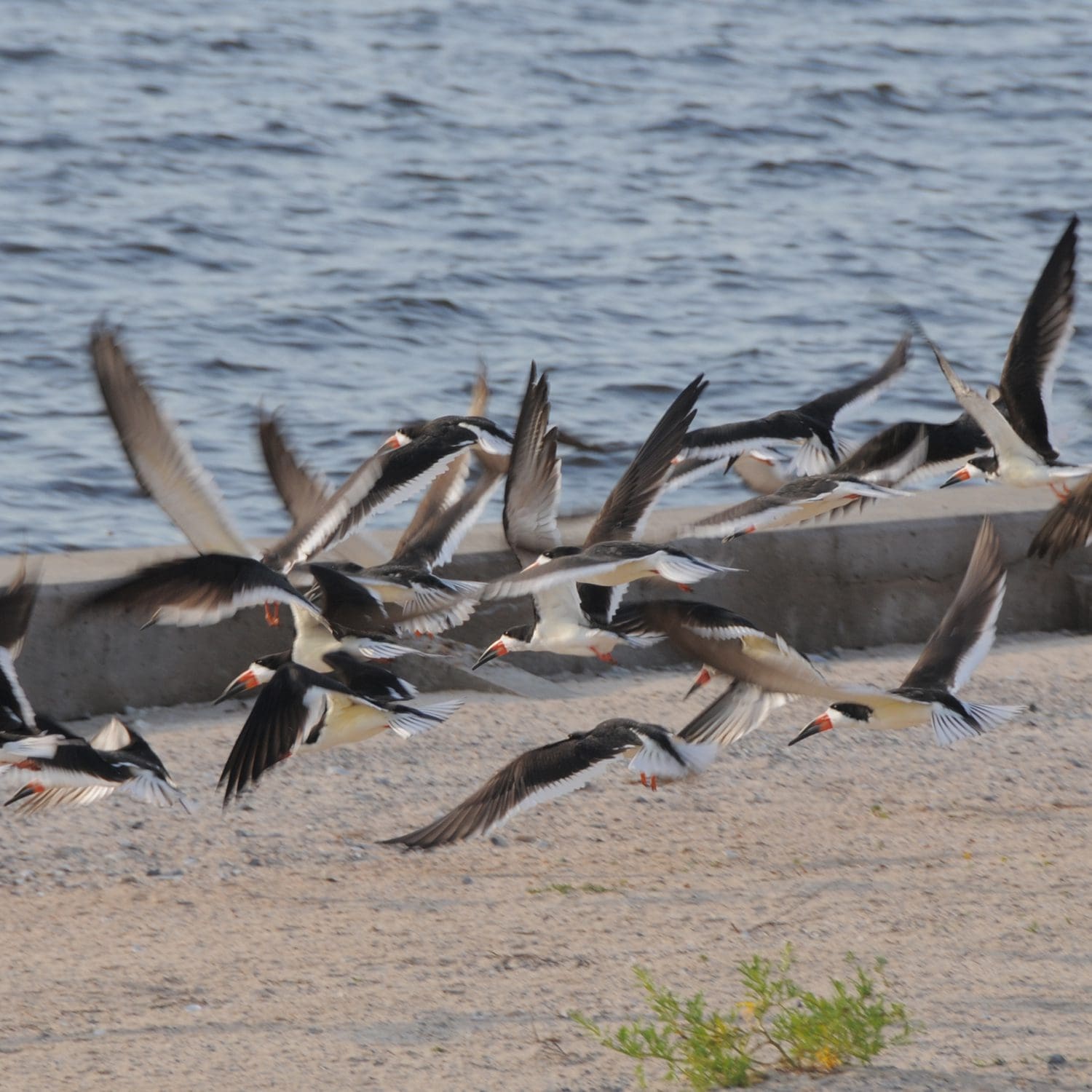
Black Skimmers/Terns
Birds begin nesting in April or May and
usually finish in August.
Black skimmers and terns will make
their nests along the causeway.
Do not disturb any nests you find. These
birds will become very territorial if their
nests or their chicks are disturbed.
Terns will dive-bomb toward anything
they perceive to be a threat. You might
notice some reduced speed limits
during nesting season. Please obey the
speed limit along beach roads to lessen
the chance that you may kill a bird or
chick.
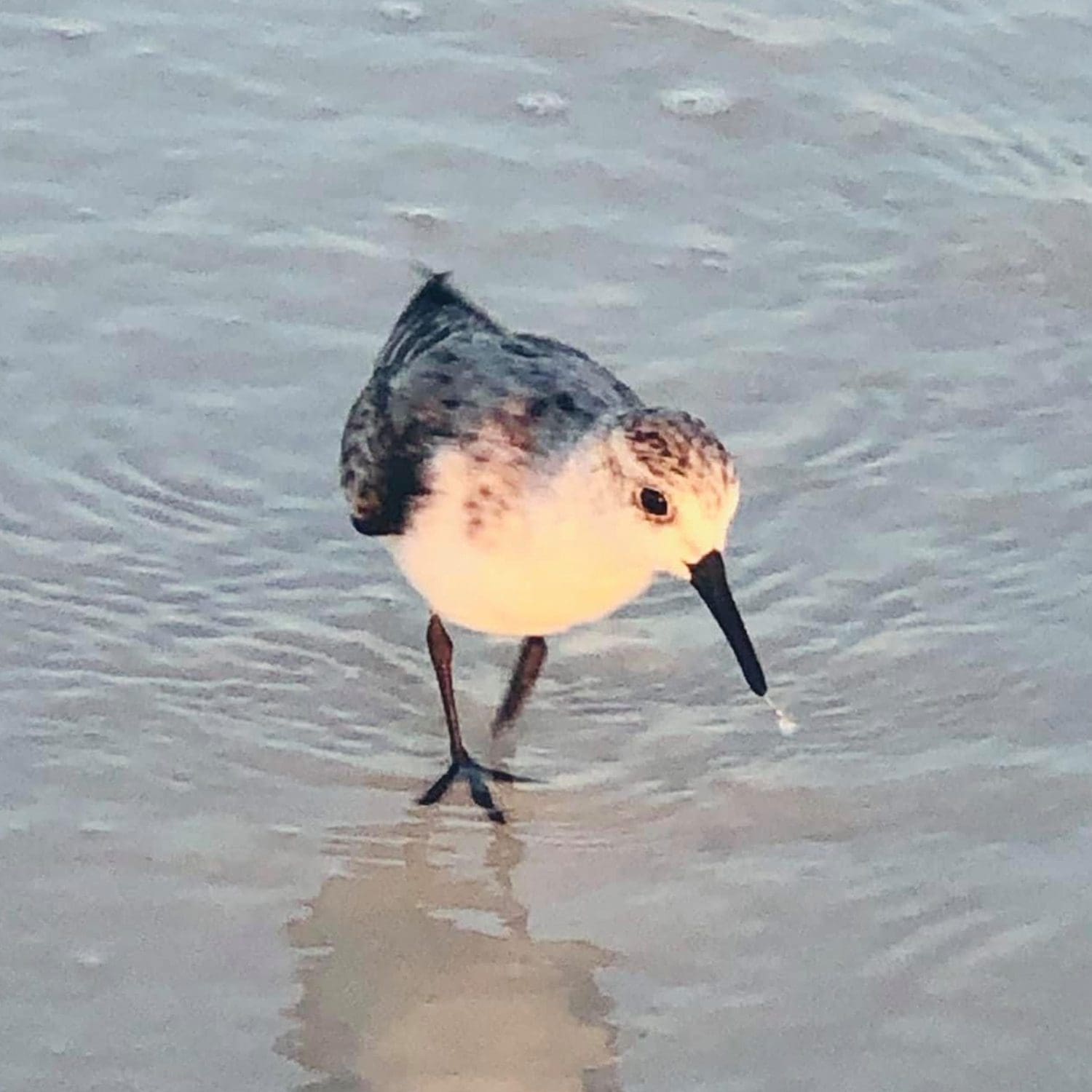
Sanderlings
These small gray and white birds that
run back and forth along the water’s
edge actually spend winters in
places like Navarre Beach and
summers in the Arctic. They have
short little legs and stubby thin
beaks. All that running around has
everything to do with their food
source. They wait for waves to retreat
and then dash up to peck up
invertebrates exposed by the waves.
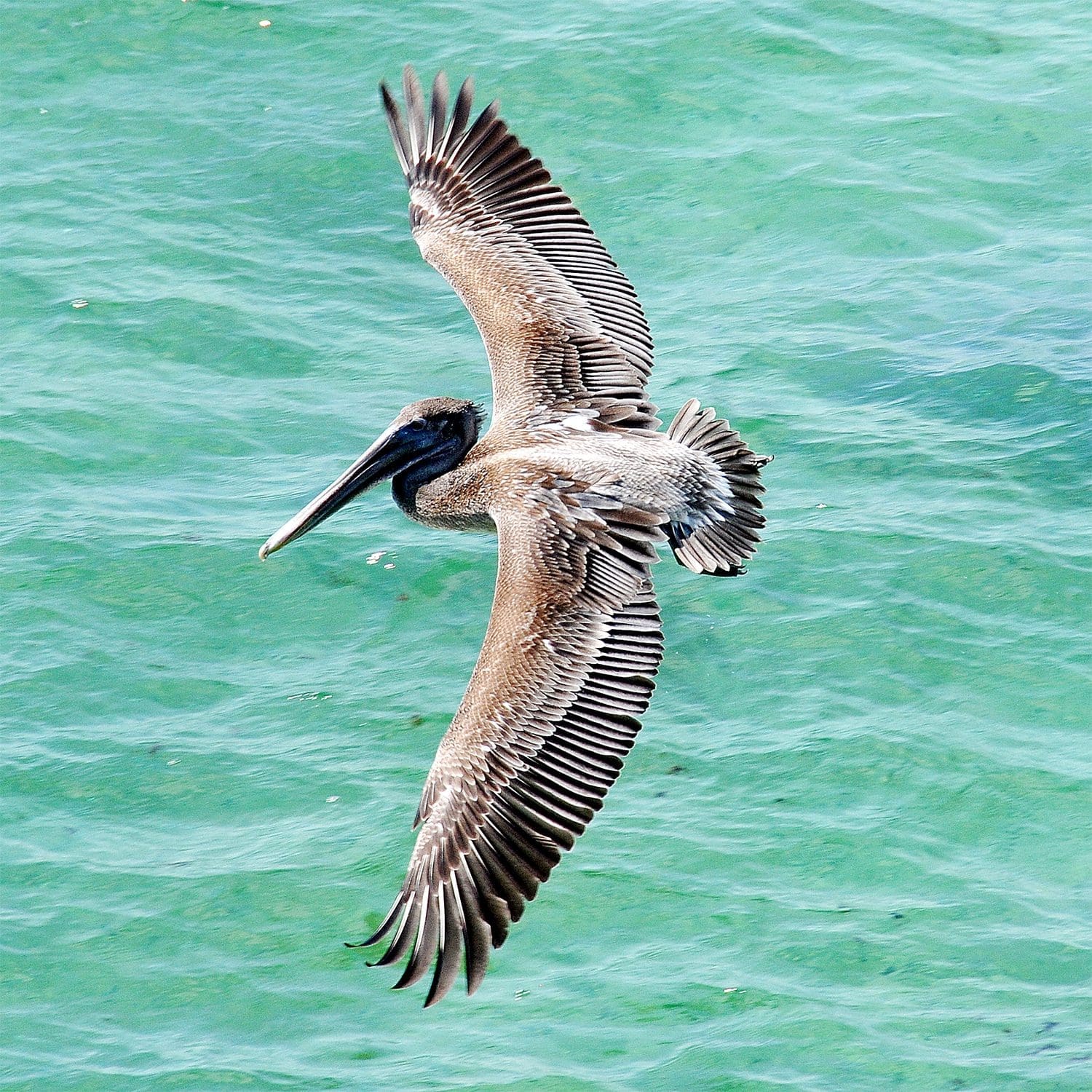
Brown Pelicans
If Navarre Beach had an official bird,
brown pelicans would likely be in the
running. They fly in a graceful
V-formation over the beach, dive
straight down in the water for food
and pester fishermen on the pier for
a free meal. But they don’t want to
be friends, experts warn. They just
want food. In the air, pelicans are
beauty and grace. On land? Not so
much. They don’t walk as much as
they waddle.
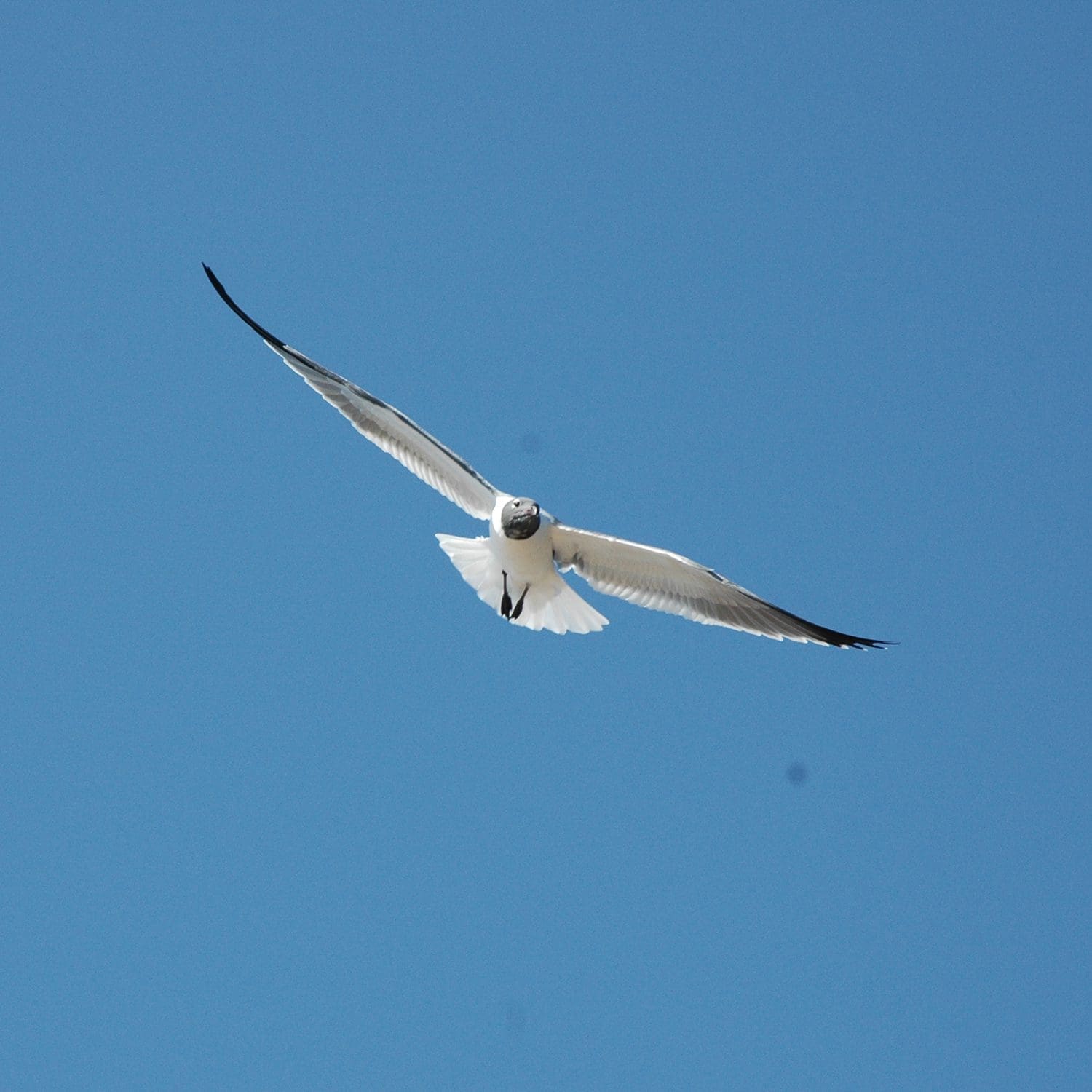
Gulls
Graceful and acrobatic, gulls are hardly
cautious around humans. They will not
hesitate to swoop down and take food
right out of your hand. You can find
these beautiful seabirds on any beach
or bay shoreline, or in and around mangrove
trees, seawalls and piers. When
you’re looking at a flock of seagulls,
you’re probably looking at several different
species that are closely related.
Enjoy watching gulls, but please don’t
feed them.
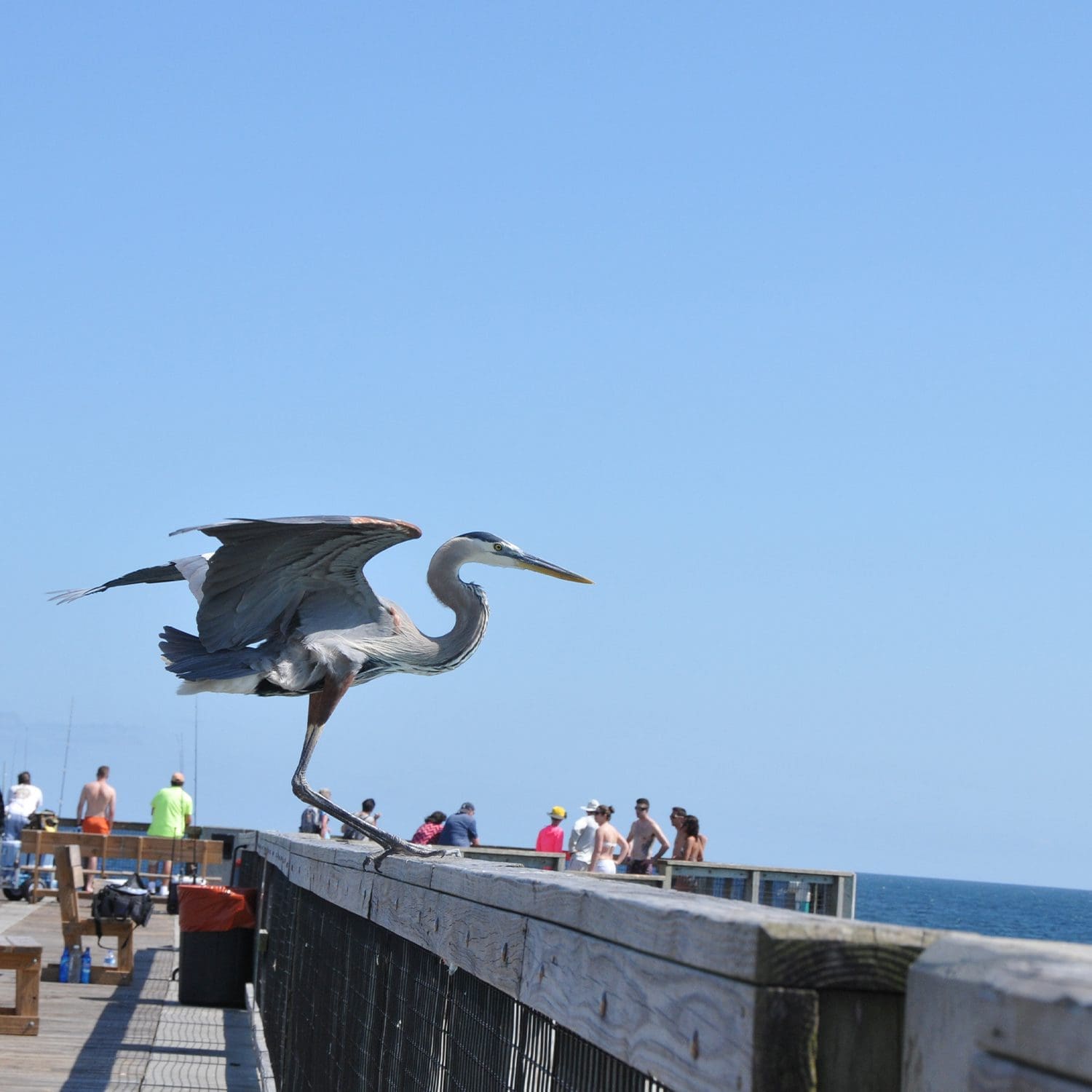
Great Blue Herons
If you see a great blue heron up north,
the chances are you will have to
use a telephoto lens to photograph
it. Along the Emerald Coast, they’ll
stand right next to you. Herons, a
lightweight bird, are perhaps best
known for their long legs and long
necks. The middle of their legs flex
backwater, but that’s because what
looks like their knee is actually their
ankle. Everything below that middle
joint is actually part of their feet.
